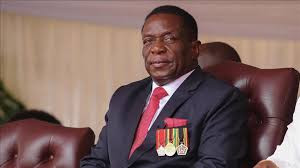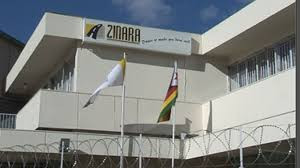
When the then military boss Constantino Chiwenga made his first press conference to begin the process of military intervention in Zimbabwe last November, it was first streamed live on Facebook, and as much as the state broadcaster, ZBCTV went on to ignore the story, the video went viral anyway, and within 24 hours, the video was circulating all over Whatsapp messenger, Youtube, Facebook, Twitter and other social media platforms.
BY TAPIWA ZIVIRA
Other broadcast and internet based media houses were to follow the event from social media.
This was just one of the signals of how powerful social media had become in a country where government had always intended to gag the mainstream media.
The following events, which saw the removal of the then president Robert Mugabe from office, were largely followed on social media, albeit with several cases of fake information being circulated.
What, however, cannot be taken away from the November 2017, is how the use of the internet and social media for spreading news has become an unignorable phenomenon, especially as the country heads for elections this year.
Several aspirants for political office have started campaigning, and it is with no doubt that, they are realising the importance of having a presence on internet-based platforms.
This is unlike in the run up to the 2008 elections when the SMS was the major form of communication in the absence of social media and in the 2013 harmonised elections when social media use was still relatively low and mostly limited to urban areas.
- Chamisa under fire over US$120K donation
- Mavhunga puts DeMbare into Chibuku quarterfinals
- Pension funds bet on Cabora Bassa oilfields
- Councils defy govt fire tender directive
Keep Reading
While specific data on social media and internet usage in Zimbabwe is scarce, the Postal and Telecommunications Regulatory Authority of Zimbabwe (Potraz) estimated that by September 2016, about 50.1% of the population was connected to the internet.
By now, the number could have significantly risen given the coming in of cheaper and more compact smart phones.
By its nature, social media allows anyone with a device and access to the internet can publish to a wide audience, overriding the traditional role of mainstream media like television, radio and newspapers.
A large number of internet-based publishers have come up to fill up the space, and interestingly some of them are caught up in the fake news phenomenon, and also publish news randomly, sometimes without adequate verification, leaving the traditional media house to be the verifier.
With such a trend, political office apsirants in Zimbabwe seem to have realised this, and are active on social media taking up various roles to prop up their chances in the coming elections.
Some have created official accounts on which they communicate directly to their audiences and these include President Emmerson Mnangagwa and main opposition MDC-T leader and MDC Alliance presidential candidate Nelson Chamisa who have set up Facebook and Twitter accounts.
For Chamisa, the fight has been on two ends, as his party’s vice president, Thokozani Khupe, who is fighting for the top leadership position, has been using social media to denigrate Chamisa and potray him is an illegitimate leader of the party.
In the end, the fight spills to the rivals’ supporters who also exchange words on social media, while other internet based publications also write sensationally about the fights.
Stories have been ongoing alleging that political parties and players have set up their own social media champions who create fake accounts to stalk and troll on rivals’ accounts.
In the middle of this, Zanu PF has also been caught in the trend.
Recently, a story on Energy Mutodi, an ally of Mnangagwa, went viral and it was alleged that the politician had overstepped the party’s regulations by prematurely announcing his intention to run as Member of Parliament for Domboshawa West.
This came as another Zanu PF aspiring MP, Tendai Munengwa, had been barred from political activities after also being accused of announcing his candidature before the party held primary elections.
Zanu PF has officially gagged its aspiring office holders to stop campaigning or announcing their intentions before the party holds by elections and in Domboshawa, Mutodi’s rivals were left bitter after he allegedly held a public meeting announcing he had the president’s blessings to stand as a candidate for the constituency.
The result was the fight did not remain offline, but went to social media, where rivals argued that Mutodi was not the area and was not fit to represent the people of the area, at a time when his rivals were locally based.
Far from the fights, the biggest take away was that the battle, just like any other political fight or event in Zimbabwe lately, ended up being a social media sensation.
With such events taking place, and more people relying on information via social media platforms, the 2018 election is likely to be unpredictable as information is no longer only coming via the traditional platforms, and readers will be flooded with information which they will have to sift through.
For the consumer, it is like drowning into a jungle of information, false and true, sensational and predictable.











